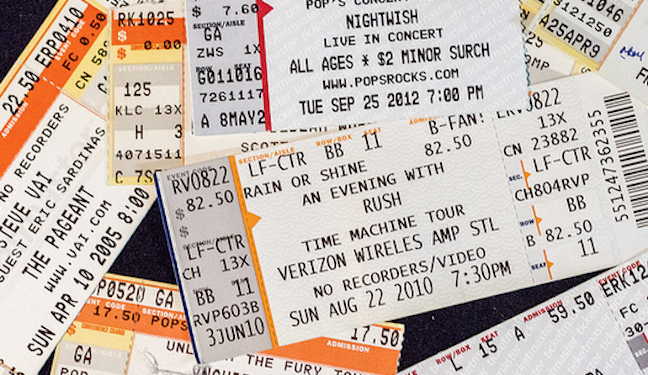How To Avoid Getting Duped When Buying Tickets Online
Purchasing tickets to see your favorite musician in concert or to cheer on the hometown team should be a relatively pain-free, if not exciting, experience. But with the onset of new technology and less-than-truthful resellers, a shadow of deception can cloud consumers’ ticket buying decisions.
The National Consumers League issued a Live Event Ticket Buying Guide to make sure fans are aware of the latest anti-consumer practices getting in the way of rocking-out in the arena.
Like many other aspects of consumers’ lives, event ticketing is nudging buyers to go paperless. So instead of a printed ticket, the customer shows their photo ID and the credit card used to make the purchase.
While this means not having to worry about running out of toner or leaving your tickets at home, it sometimes means that the tickets are non-transferrable, or transferrable after paying a fee. So if something comes up and you can’t attend, you can’t easily sell or give away your tickets.
Additionally, if you’re one of the U.S. growing number of unbanked consumers who don’t have a credit card, you’re pretty much out of luck when it comes to these types of events, which include recent concerts by Arcade Fire, Eric Church and Garth Brooks.
Occasionally, tickets for events sell out more quickly than consumers can snap them up.
In this case, concert and event-goers often turn to resale sites such as Ticketmaster’s TicketExchange or StubHub. While these sites may provide a viable option for ticket-less consumers, some may be setting arbitrary minimum prices for tickets which could end up costing consumers significantly more without even realizing it.
For example, NCL reports that Buffalo Bills TicketExchange sets its price floor at face value. A pre-season game against the Detroit Lions a ticket in Section 139 with a face value of $58 can only be listed on TicketExchange for $58. However, other resale sites were found to be selling tickets for as low as $3.
Another concern is that some resale sites are trying to trick consumers into believing they are purchasing tickets for face value through the box office or official primary ticket seller when that is simply not the case.
Such shady sites are known to use website ads, venue pictures and descriptions such as “official” tickets to persuade consumers to purchase tickets.
While federal and state regulators have cracked down of these deceptive practices, they are still used and the NCL warns consumers to double-check the sites’ validity.
To ensure you’re getting the best bang for your buck when it comes to upcoming concerts and sporting events NCL provides several tips for consumers:
- Read the fine print
- Look into presales
- Beware of hidden price floors
- Use reliable sellers
- Check your ticket vendor’s guarantee
- Buy with a credit card
- Check if the price includes additional fees
Practical guide to buying live event and sports tickets [National Consumers League]
Want more consumer news? Visit our parent organization, Consumer Reports, for the latest on scams, recalls, and other consumer issues.


